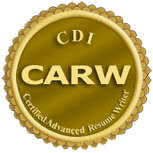 In this digital age of rapid advancements and evolving job markets, the traditional resume has undergone significant changes. Gone are the days when a one-page document listing your educational background and work experience sufficed. As employers seek to understand candidates on a deeper level, it's essential to adapt our resumes accordingly. In this blog post, we'll explore the things that are no longer necessary to include on a resume in the modern job search landscape. Objective Statement For years, job seekers were advised to include an objective statement at the top of their resume, outlining their career goals. However, this practice has become outdated. Hiring managers now expect applicants to tailor their resumes to specific job postings, highlighting relevant skills and experiences. Instead of a generic objective statement, consider writing a compelling summary or professional profile that showcases your key qualifications and achievements. References In the past, it was customary to include a list of references at the end of a resume. However, in today's digital age, it is assumed that you will provide references upon request. Including references on your resume can take up valuable space that would be better used to highlight your accomplishments and skills. Instead, use that space to showcase your expertise and relevant achievements. Irrelevant Work Experience In the past, job seekers were encouraged to include every job they've ever had, regardless of its relevance to the position they were applying for. However, now it's more important to focus on relevant work experience that demonstrates your skills and accomplishments. Tailor your resume to highlight experiences that directly relate to the job you're seeking, allowing potential employers to see your suitability for the role at a glance. High School Information Unless you're a recent high school graduate or have limited work experience, it's no longer necessary to include information about your high school education. Hiring managers are primarily interested in your college or university degree, along with any relevant certifications or professional development courses. Focus on showcasing your higher education achievements and relevant coursework instead. Outdated Skills Technology and industry landscapes evolve rapidly, rendering some skills obsolete. Including outdated skills on your resume can make you appear out of touch with current trends. Instead, emphasize your proficiency in relevant and in-demand skills. Highlight any certifications or specialized training you've received to showcase your commitment to staying up-to-date in your field. Personal Information In the past, it was common to include personal information such as marital status, age, and hobbies on a resume. However, this information is now considered unnecessary and could potentially lead to bias in the hiring process. Focus on presenting your professional qualifications, skills, and experiences that directly relate to the job requirements. As the job market continues to evolve, so too should our resumes. By letting go of outdated resume practices, we can create more effective and targeted documents that capture the attention of hiring managers. Emphasize relevant experience, skills, and achievements, and ensure your resume aligns with the specific job requirements. By adapting our resumes to the modern job search landscape, we increase our chances of securing the opportunities we desire.
0 Comments
The job outlook for executive candidates is a topic of interest to many professionals. As the economy continues to recover from the impact of the COVID-19 pandemic, many executives are wondering what the future holds for job opportunities and career advancement. In this article, we will explore the current job outlook for executive candidates and provide statistics from online sources to support our analysis.
According to a report by the Bureau of Labor Statistics (BLS), the employment of top executives is projected to grow by 4% from 2019 to 2029. This growth rate is about as fast as the average for all occupations. The report also states that the demand for executives will vary by industry and that those with strong leadership skills and experience in digital technologies will have the best job prospects. A survey conducted by Korn Ferry, a global organizational consulting firm, found that 73% of executives are optimistic about the job market in 2021. The survey also found that the demand for executive talent is high, particularly in the technology, healthcare, and financial services industries. Another survey by the Association of Executive Search and Leadership Consultants (AESC) found that executive search firms are optimistic about the job market in 2021. The survey found that 72% of executive search firms expect to see an increase in demand for executive talent in the coming year. The COVID-19 pandemic has had a significant impact on the job market, and executive positions were not immune to this impact. However, the job market is showing signs of recovery, and executives with the right skills and experience are still in demand. According to a report by McKinsey & Company, the pandemic has accelerated the need for digital transformation in many industries. As a result, executives with experience in digital technologies, such as cloud computing, artificial intelligence, and cybersecurity, are in high demand. The report also states that executives with experience in crisis management and risk mitigation are highly sought after. The job outlook for executive candidates varies by industry. According to a report by the AESC, the healthcare industry is expected to see the highest demand for executive talent in the coming year, followed by the financial services and technology industries. The report also found that executive positions in the consumer goods, industrial, and professional services industries are expected to see moderate demand. The demand for executives is not limited to the United States. According to a report by Hays, a global recruitment firm, executive job opportunities are growing in many countries, including Australia, Canada, and the United Kingdom. The report states that executives with experience in digital technologies, healthcare, and sustainability are in high demand. Executives looking for job opportunities should also consider the importance of soft skills. According to a report by LinkedIn, the top soft skills that employers are looking for in 2021 include creativity, persuasion, collaboration, adaptability, and emotional intelligence. These skills are increasingly important as companies navigate a rapidly changing business landscape. Executives who can demonstrate these skills in addition to their technical expertise will be more competitive in the job market. In addition to soft skills, executives should also focus on building their networks. According to a survey by ExecuNet, a leading executive job search and career management network, 86% of executives found their last position through networking. Building and maintaining professional relationships can help executives learn about job opportunities and get referrals. Executives should consider attending industry events, participating in online forums, and reaching out to colleagues and mentors for networking opportunities. Another important consideration for executives is their compensation. According to a report by the BLS, the median annual wage for chief executives was $184,460 in May 2020. However, compensation can vary widely by industry, company size, and location. Executives should research compensation trends in their industry and negotiate their salary based on their skills and experience. Finally, executives should consider the importance of continuing education and professional development. According to a report by the Association for Talent Development (ATD), executives who participate in professional development programs are more likely to be promoted and less likely to leave their current position. Executives should consider pursuing certifications, attending conferences, and enrolling in executive education programs to stay up to date on the latest trends and best practices in their industry. In conclusion, the job outlook for executive candidates is positive, with growth projected in the coming years. The demand for executives will vary by industry, with those with experience in digital technologies, healthcare, and risk management being in high demand. The COVID-19 pandemic has accelerated the need for digital transformation, and executives with experience in this area are well-positioned for career advancement. As the economy continues to recover, executives can expect to see an increase in job opportunities and career advancement opportunities. By focusing on these areas, executives can position themselves for success in a rapidly changing business landscape. It can be exciting and rewarding to seek employment abroad, whether you are a recent graduate or an experienced professional. If you are to succeed in your job search, you must have a well-crafted international CV that highlights your skills, experience, and achievements in a way that resonates with employers worldwide.
An individual's curriculum vitae summarizes their educational background, work experience, skills, and accomplishments. In contrast to a resume, a CV is more comprehensive and can be several pages long. Let's explore some tips for writing a good international CV that will help you stand out from the competition and increase your chances of landing your dream job abroad. Organize & Keep Concise Although CVs can be several pages long, it is important to keep them concise and well-organized. Employers in different countries have different preferences regarding CV length, but in general, you should aim to keep it to two or three pages. To make your CV easy to read and navigate, use headings and bullet points to break up long paragraphs of text. Start with a brief personal statement that summarizes your career goals and what you can bring to the table, followed by sections on your education, work experience, skills, and achievements. Adapt your CV to the Job & Country When applying for a job abroad, it is important to tailor your CV to the job and the country. This means researching the job requirements and the cultural norms of the country you are applying to and adjusting your CV accordingly. If you are applying for a job in a country where teamwork and collaboration are highly valued, emphasize your teamwork experience and ability to communicate effectively. A section on your language proficiency and your experience working in multilingual environments should also be included if you are applying for a job in a country where English is not the primary language. Highlight your International Experience If you have experience working or studying abroad, make sure to highlight this on your CV. Employers in different countries value candidates who have experience working in different cultural contexts and who are adaptable and open-minded. If you have lived or worked in multiple countries, consider creating a separate section on your CV that highlights your international experience. Include information on the countries you have lived or worked in, the languages you speak, and any cultural or professional experiences you have had that demonstrate your adaptability and intercultural competence. Emphasize your Transferable Skills When applying for a job abroad, it is important to emphasize your transferable skills – that is, skills that are relevant in any industry or country. These may include communication skills, problem-solving skills, leadership skills, and adaptability. Use specific examples from your work experience or education to demonstrate how you have developed these transferable skills. For example, if you have experience leading a team, highlight how you motivated and inspired your team members to achieve their goals. Use the Right Format & Language The format and language of your CV can also make a difference when applying for a job abroad. In general, it is best to use a simple, clean format with plenty of white space and a clear font. Avoid using fancy fonts or graphics that may not be compatible with different computer systems. In terms of language, make sure to use clear, concise language that is easy to understand. If you are applying for a job in a country where English is not the primary language, consider having your CV translated into the local language or providing a brief summary in the local language. Include References, Depending on Country In some countries, it is common to include references on your CV. These may be former employers, colleagues, or professors who can vouch for your skills and experience. When including references, make sure to ask for permission first and provide their contact information, including their name, title, email, and phone number. It is also a good idea to provide a brief summary of your relationship with the reference and how they know you. In conclusion, writing a good international CV requires careful research, attention to detail, and a focus on highlighting your skills, experience, and achievements in a way that resonates with employers in different countries. By following these tips, you can create a CV that stands out from the competition and increases your chances of landing your dream job abroad. To learn more about writing a powerful CV, feel free to check out this article on how to write a CV. |
Categories
All
Archives
December 2023
|
HOURSM-F: 9am - 5pm
|
|





